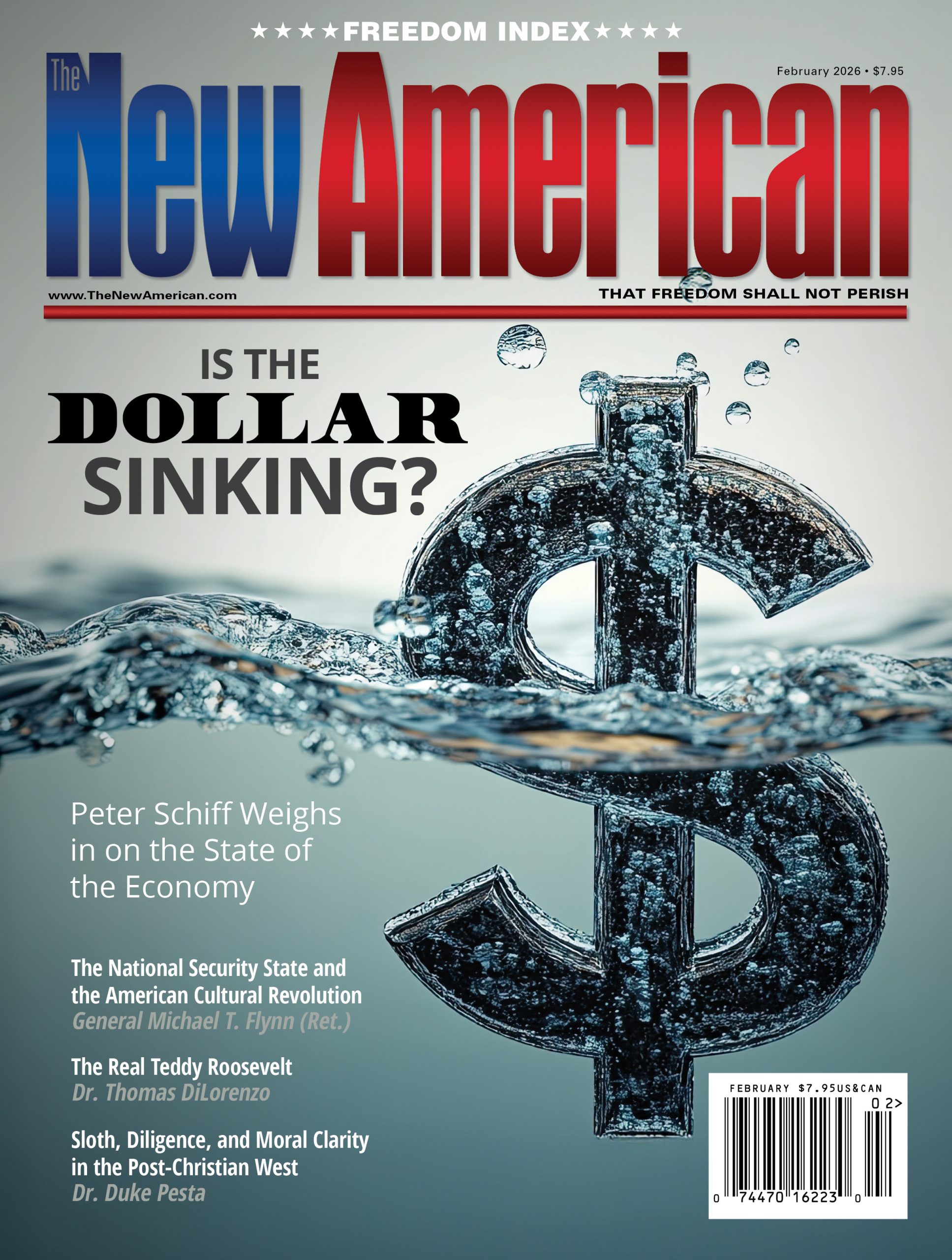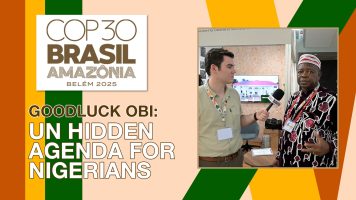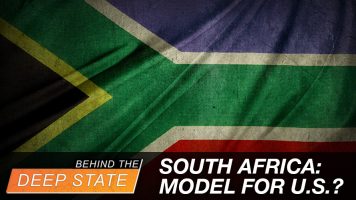
South African Communist Party Admits Mandela’s Leadership Role
Shortly after the death of South African revolutionary Nelson Mandela, the South African Communist Party and the African National Congress both released official statements acknowledging what was already well-known among experts: “Comrade” Mandela was indeed a Communist Party leader who served on the Soviet-backed organization’s Central Committee. According to the Communist Party statement on Mandela’s passing, not only was the confessed terror leader a senior official on the South African Communist Party’s highest decision-making body, he was actually close to the outfit until his death.
Until last week, apologists for Mandela still claimed implausibly that his “alleged” alliance with international communism was mostly a marriage of convenience. Some of his more ardent or ignorant fans, relying on decades of lying denials from Mandela and others in the know about his membership in the party, even tried to claim that charges of communism were fabrications by Apartheid supporters, “conspiracy theorists,” and “extremists.” For now, the press outside of South Africa does not seem to have even noticed the earth-shattering news.
The controversial revolutionary figure, who admittedly oversaw a ruthless but largely forgotten campaign of terror against civilians that left women and children of all races dead, simply could not have really been a real, card-carrying communist — or so his adoring fans wanted to believe, at least. The latest evidence, however, confirms otherwise, once again. Now, the truth is officially out, but whether it will be reported by the establishment press remains to be seen.
Much of the world — especially government leaders, dictators, the press, and South Africans — has been too busy mourning his passing to take notice of the explosive revelations. However, the now-irrefutable fact that Mandela played a key role in the ruthless international communist movement should not be forgotten amid the praise. It has now been officially admitted, and despite the lack of attention, remains crucial to understanding Mandela and his real legacy.
Conservative estimates suggest that in the last century alone, communist regimes — virtually all of which backed Mandela with troops, funding, and more — have been responsible for at least 100 million murders. The numbers are probably much higher. Mandela’s own admitted terror campaign, including the infamous 1983 Church Street bombing, which killed 19 and wounded over 200, claimed many lives, too. He pled guilty to over 150 acts of public violence.
In the statement released on December 6 and published by assorted Marxist outfits, the South African Communist Party, or SACP, helped shed light on all of it. “At his arrest in August 1962, Nelson Mandela was not only a member of the then underground South African Communist Party, but was also a member of our Party’s Central Committee,” the SACP said in the statement, illustrating once again the enormity of the long and successful track-record of communist deception.
As to why it was denied for so long, SACP deputy general secretary Solly Mapaila was quoted in South African news reports as saying it was for “political reasons” — apparently people would have been upset to realize their hero and supposed “liberator” was, actually, a card-carrying communist. “There was a huge offensive by the oppressive apartheid regime at the time against communists,” Mapaila said, adding that all of the terrorists tried at Mandela’s Rivonia Trial were Party members.
When Mandela was released from prison, Mapaila added, the mass-murdering regime ruling over what was then the Soviet Union was supposedly “crumbling,” and there was “too much negativity around the Soviet system” to tell South Africans the truth. He added: “But we should not focus on that now, let us focus on resting the old man.”
Unsurprisingly, the statement went on to praise Mandela and his African National Congress (ANC), where the South African revolutionary would go on to found the outfit’s armed wing. “To us as South African communists, Comrade Mandela shall forever symbolise the monumental contribution of the SACP in our liberation struggle,” the SACP said. “The contribution of communists in the struggle to achieve the South African freedom has very few parallels in the history of our country.”
Also admitted in the SACP statement are facts that his adoring fans — the United Nations even designated a “Nelson Mandela International Day,” while Obama compared him to George Washington and ordered flags flown at half-mast — will have even more trouble explaining away. “After his release from prison in 1990, Comrade Madiba became a great and close friend of the communists till his last days,” the South African Communist Party said.
Today, the common perception of the South African revolutionary, who regularly sang “struggle” songs advocating the mass-murder of whites, holds that he was a “political prisoner.” Left unmentioned in the SACP statement and the adoring obituaries, of course, was the fact that Mandela was repeatedly offered the opportunity to walk out of jail if he would just renounce violence, which he consistently refused to do. For the SACP and the international communist movement, he represented nothing less than a hero for his positions and activities.
“The passing away of Comrade Mandela marks an end to the life of one of the greatest revolutionaries of the 20th century, who fought for freedom and against all forms of oppression in both their countries and globally,” the SACP continued, perhaps hoping to rally support for communism by making the announcement now, amid worldwide praise for one of their former leaders. “In Comrade Mandela we had a brave and courageous soldier, patriot and internationalist who, to borrow from Che Guevara, was a true revolutionary guided by great feelings of love for his people, an outstanding feature of all genuine people’s revolutionaries.”
The communists then went on to praise Mandela’s corruption-plagued ANC — which governs South Africa in an alliance with the SACP and a coalition of labor unions — as well as the controversial but intimate link between the two supposedly distinct forces. “The one major lesson we need to learn from Mandela and his generation of leaders was their commitment to principled unity within each of our Alliance formations as well as the unity of our Alliance as a whole and that of the entire mass democratic movement,” the statement said.
“Their generation struggled to build and cement the unity of our Alliance, and we therefore owe it to the memory of Comrade Madiba to preserve the unity of our Alliance,” the SACP continued about the Communist Party union with the ANC, referring to Mandela by his tribal name. “Let those who do not understand the extent to which blood was spilt in pursuance of Alliance unity be reminded not to throw mud at the legacy and memory of the likes of Madiba by being reckless and gambling with the unity of our Alliance.”
However, despite all of the praise, the SACP acknowledged that the effort to enslave South Africa under communist tyranny was not yet complete. Suggesting that Mandela supported their plans, the SACP said that “some would like us to believe” that the revolutionary’s push for “national reconciliation” meant leaving some freedoms in place — or “class and other social inequalities in our society,” as the communists put it. That is not the case, however, the party claimed.
“For Madiba, national reconciliation was a platform to pursue the objective of building a more egalitarian South African society free of the scourge of racism, patriarchy and gross inequalities,” it said, ignoring the spectacular horrors afflicting Communist Party-ruled North Korea, for example, or Cuba, where fervent Mandela ally Fidel Castro has shown what a society ruled by their “ideology” really looks like. “And true national reconciliation shall never be achieved in a society still characterized by the yawning gap of inequalities and capitalist exploitation.”
Ironically, perhaps, since communist forces seized power in South Africa two decades ago, it has become one of the most unequal societies in the world in terms of wealth distribution. In a nut shell, as in every country dominated by communist political forces, leaders and their cronies end up with what remains of the perpetually diminishing supply of wealth, while everyday people end up living in squalor — oftentimes starving to death.
“In honour of this gallant fighter, the SACP will intensify the struggle against all forms of inequality, including intensifying the struggle for socialism, as the only political and economic solution to the problems facing humanity,” the statement noted. The passing of Mandela, the outfit claimed, represents a “second chance” for everyone who has not “fully embraced a democratic South Africa” and “majority rule” — in other words, everyone who has not embraced totalitarianism under the guise of mob rule, instead of the rule of law, as in republics such as the one established in the United States under the Constitution.
The ANC, meanwhile, also confirmed Mandela’s Communist Party membership while praising the former leader of its armed wing, Umkhonto we Sizwe (Spear of the Nation). “Madiba was also a member of the South African Communist Party, where he served in the Central Committee,” the ANC statement admitted. “His was a choice to not only be a product but the maker of his and his people’s history.”
“In his lifetime of struggle through the African National Congress, he assumed and was assigned various leadership positions,” the ANC added. “He served with distinction. He was part of the ANC leadership collective and did not make decisions without first reflecting with his comrades. Yet he would fight for the principle of what was the right thing to do.”
Of course, increasingly iron-clad evidence of Mandela’s prominent role in the international communist conspiracy had been trickling out for decades. Early on, for example, there was a hand-written document by Mandela, dubbed “How To Be A Good Communist,” that was cited during his successful prosecution for sabotage, subversion, and terror. “We communist party members are the most advanced revolutionaries in modern history,” Mandela proclaimed in the essay. “The people of South Africa, led by the South African Communist Party, will destroy capitalist society and build in its place socialism.”
More recently, as The New American reported late last year, evidence uncovered by British historian Stephen Ellis also exposed Mandela’s denials of Communist Party membership as a fraud, all the while trying to downplay the significance. The new research, based on Party minutes and more, confirmed not only that the ANC leader was a member of the SACP, but also that he was actually a senior official working with the party’s Central Committee.
As The New American has documented extensively over a period of decades, despite Mandela’s communism and terrorism, Western governments and power brokers, along with the world’s ruthless communist despots, played a key role in bringing him to power. Now, however, even with the undeniable truth exposed, even as South Africa descends into chaos, genocide, and grinding poverty, it is unlikely that apologies will be forthcoming.
An excellent analysis of Mandela’s Communist Party membership, written by anti-Apartheid activist and Afrikaner journalist Rian Malan, explains the enormous significance well. South Africans and the world have been duped. The “man of peace” who is so widely revered around the world was not the real Mandela. If humanity knew that it was idolizing a man now conclusively exposed as a Soviet-backed Communist Party leader and an admitted terrorist, however, the reaction to his death may have been different. For more on the real Mandela, see William F. Jasper’s recent article, “Saint” Mandela? Not so Fast!
The end does not, and will never, justify the means, no matter what communists and Mandela apologists may claim. Amid the global outpouring of praise, victims of Mandela’s bombing campaigns have faded from memory. So, while the world mourns the loss of Mandela, perhaps remembering his victims — who were primarily fellow blacks suspected of being opposed to the communist takeover of South Africa — would be a more worthwhile endeavor; along with the many tens of millions of victims of communism all over the world. They have been almost erased from history, but everyone who loves the truth has a responsibility to ensure that they are not forgotten, and that history does not repeat itself.
The photo at top shows Nelson Mandela with Cuban communist dictator Fidel Castro during the “Day of the Revolution” celebration in Cuba; July 27, 1991: AP Images
Alex Newman, a foreign correspondent for The New American, is normally based in Europe. He can be reached at [email protected].
Related articles:
New Evidence Shows Mandela Was Senior Communist Party Member
In Death, as in Life, Truth About Mandela Overlooked
South African Communists’ Friends in High Places
Genocide and Communism Threaten South Africa
Socialist International Congress Hosted by ANC Amid Genocide Alert
South African Tells of Genocide in Communist-dominated South Africa




